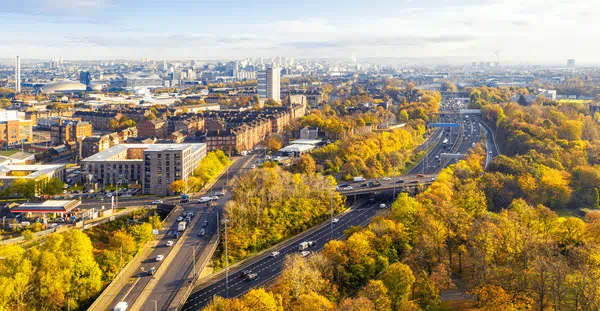People flock to cities because of their work, education opportunities, innovation, social activity and communities that comes with urban life. But without proper planning and design, the cities of the future will not be places where people can fully unlock their potential. When it comes to housing in particular, the problems we face as a nation are well versed with generational neglect leaving us at crisis. So how can developers address this challenge, delivering alternative residential assets and areas that bring social, environmental and economic benefits?
Crucial to address this challenge is understanding the demographics around urban, sub-urban and rural occupants, identifying what housing stock we currently have and how to drive change. From student housing to later living accommodation, a fresh approach to alternative residential assets is certainly needed.
With student housing, Birmingham still lags behind in retaining its student graduate population, with many gifted and talented students moving to London after graduating. With 24% retention in comparison to 64% in Manchester, you can see we have a problem that urgently needs to be addressed. There are several aspects to consider, including the overall offer of the city, leisure and culture options, social aspects and green parks, as well as whether the housing products are fit for purpose. As the built-to-rent market matures, particularly in Birmingham where several developments are underway, chances of a lift in retention will surely come.
For those wanting to get onto the housing ladder, the government is providing various stimulus from a taxation perspective, with initiatives such as help-to-buy and the exemption of stamp duty which has now been extended to June. However, that is a stop gap and long-term solutions need to be sought. One option is providing good, affordable rented properties for people who are unable to access a mortgage.
Meanwhile, there is a challenge around providing suitable later living accommodation and a debate around whether retirement homes should be urban, rural or suburban. Above all, it’s crucial that occupants have the opportunity to form a bond with a new community. One of the possible impacts of Brexit is the challenge around providing access to good care staff, and on top of that it’s about providing facilities that are easy for staff to travel to. London is heavily reliant on the tube network and public transport but to meet the government’s levelling up agenda, improved access to transport is urgently needed. This is already happening in the West Midlands, with upgrades to the tram system and improved bus systems. As mentioned in Birmingham City Council’s ‘Our Future City Plan’, desirable sustainable transport choices in areas of high housing density to support a move away from private cars will be integral.
With many elderly people living in underoccupied housing, there’s an opportunity to lease those assets for reuse by their families and then for good quality later living retirement facilities to be built. This would mean releasing equity to either top up pension funds or to move to a better quality of life that means they’re not in isolation, their health and wellbeing is being looked after and there’s access to care if needed. But the only thing that will entice people to make that change is access to very good amenities.
These amenities may include swimming pools, gyms, libraries and hairdressers – which happen to be similar facilities desired by students. However, the affordability gap for many students is still huge. There’s a double challenge here with there’s a later living aspect of the housing system where a lot of people are asset rich with wealth created throughout their lives, and at the other end is asset poor.
One of the ways some countries in Europe have been tackling this challenge is by providing a multi-generation housing offer where students and elderly residents live in the same apartment blocks. The key benefit is subsidised rental models, where students get a reduced rate if they provide a certain amount of care. In this instance, the definition of care is wide, with examples including supporting a certain meeting or function. This would entail creating buildings for different needs, and it has worked in countries such as Holland and Germany – could it work in the UK? It would certainly be a way to bring social value into housing developments.
Above all, a regional economy needs various options to work together to provide choice, flexibility and different products to suit various customers. Developers need to look at new sites like a jigsaw piece and consider how they fit into the wider picture and embrace their surroundings.




